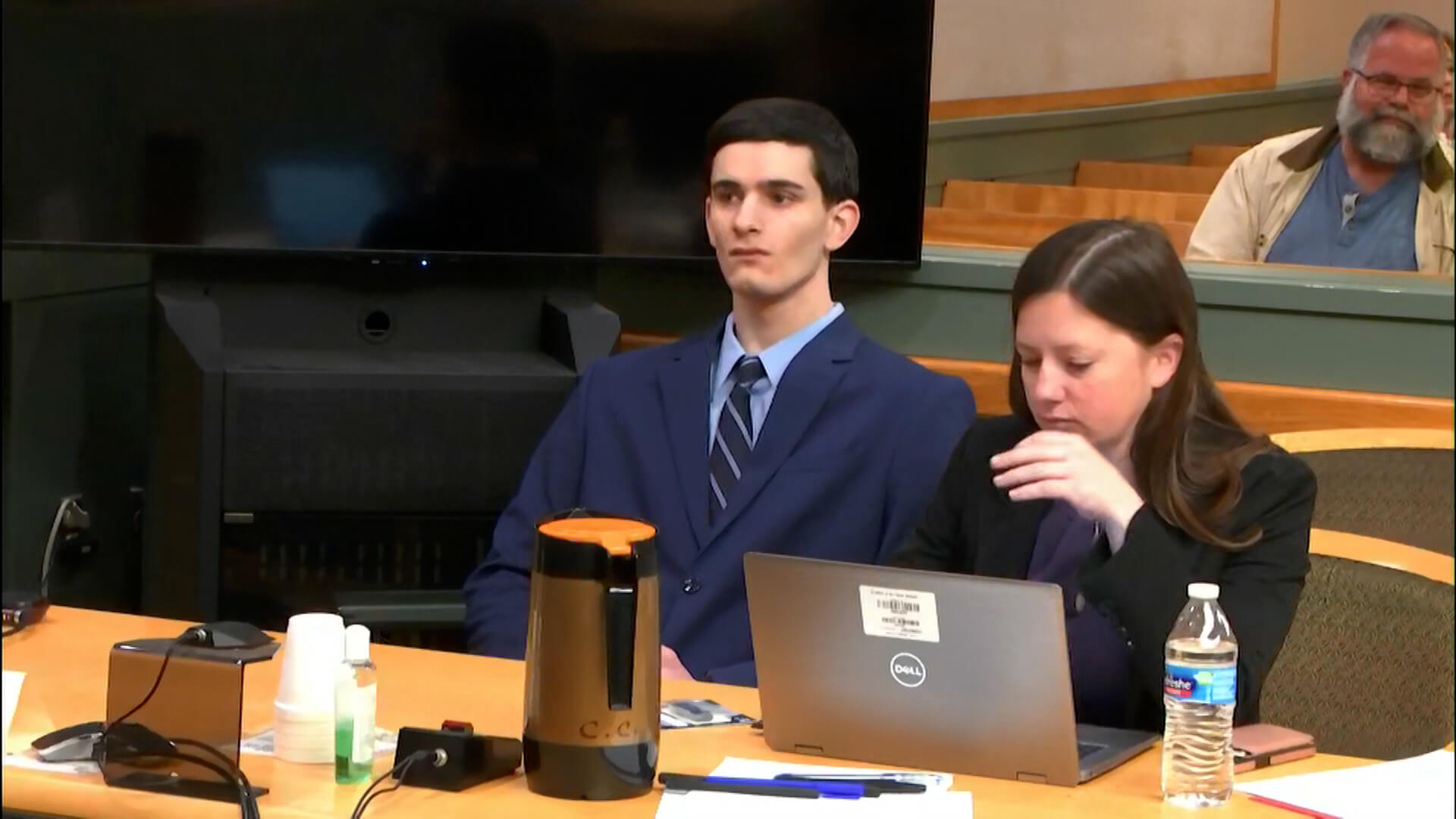Introduction
The story of Zachary Latham is one that has sparked outrage, confusion, and extensive media coverage across the United States. It’s a chilling reminder of how social media clout, unresolved neighborhood tensions, and real-life confrontation can intersect with devastating results. At the heart of this narrative is a teenage TikTok user, his pursuit of viral fame, and a deadly encounter with his neighbors that changed lives forever.
Zachary Latham rose to infamy following a tragic and violent incident that resulted in the death of his neighbor, William “Tim” Durham Sr., a respected correctional officer and father. While the confrontation occurred in 2020, the story continues to circulate due to the complex nature of the case, involving social media videos, claims of harassment, and allegations of premeditated violence.
This article provides a comprehensive overview of the Zachary Latham case, from his background and TikTok activity to the fatal altercation and the legal battle that followed. We’ll also cover the broader implications of the case on social media culture, self-defense laws, and internet ethics.
Who is Zachary Latham?
Zachary Latham was a 18-year-old resident of Vineland, New Jersey, at the time of the incident. He gained notoriety on TikTok by uploading videos that featured confrontational clips with his neighbors, particularly members of the Durham family. These videos, labeled with captions like “Karen” and “Crazy Neighbor,” quickly gained traction online, attracting thousands of views and followers.
Latham, an active user of TikTok, framed himself as a young man standing up to alleged neighborhood bullies. However, critics and prosecutors would later argue that these videos were an attempt to provoke and gain internet fame at the expense of escalating real-world tensions.
His content wasn’t just limited to neighborhood altercations. Zachary Latham also posted videos showcasing his flashy lifestyle, driving a Dodge Charger, flexing weapons, and frequently referencing confrontations. It was a classic example of the modern “clout-chasing” behavior seen among younger social media influencers who thrive on controversial content to boost their online presence.
Timeline of Events Leading to the Confrontation
The Latham-Durham conflict didn’t start with the fatal incident. According to testimonies and video evidence, tensions between Latham and the Durham family escalated over several weeks. Latham would frequently record encounters with Catherine Durham (wife of Tim Durham), labeling her with derogatory names and mocking her behavior. He claimed she harassed him, while the Durhams accused him of reckless driving and provocative behavior.
One particular video showed a heated exchange where Catherine Durham confronted Latham over his speeding in the neighborhood, which he later edited and uploaded to TikTok. The video went viral. According to prosecutors, these social media posts were not only inflammatory but seemed to provoke further confrontations.
The tipping point came on May 4, 2020. A confrontation outside Latham’s residence escalated quickly and ended in tragedy.
The Fatal Incident
On the day of the incident, Catherine Durham and her sons allegedly confronted Latham near his home. The altercation moved from the street into Latham’s garage and eventually into the house. There, in what prosecutors described as a planned ambush, Zachary Latham fatally stabbed William “Tim” Durham Sr.
According to police reports, Latham used a stun gun and two knives during the fight. He recorded portions of the incident on his phone. His wife, Sarah Latham, also recorded some of the confrontation. The use of recording devices raised suspicions about premeditation, with prosecutors arguing that the couple anticipated violence and planned to use it for more viral content.
Latham claimed self-defense, stating that the Durham family came to his house to attack him. His defense team argued that he feared for his life and responded with necessary force.
However, the prosecution emphasized that Latham had been posting about the family, provoking them, and even inviting further conflict through his videos. They alleged that Latham lured the Durhams to his property to incite violence and record it for views.
Legal Proceedings and Public Reactions
Zachary Latham was arrested and charged with aggravated manslaughter and multiple weapons offenses. He pleaded not guilty.
The case attracted national media attention, with many labeling it as the “TikTok murder.” The trial proceedings included heated debates over self-defense laws, New Jersey’s Castle Doctrine (the legal principle that one has the right to defend themselves inside their home), and the ethical responsibilities of social media users.
In late 2021, the court heard testimonies from both sides, including video evidence captured during the altercation. While some argued that the Durham family took matters into their own hands and unlawfully entered Latham’s property, others insisted that Latham’s actions leading up to the stabbing showed a pattern of provocation.
Social media played a central role in the courtroom, with prosecutors presenting Latham’s TikTok videos as part of their evidence. They contended that he intentionally antagonized the family, baiting them into confrontations for the sake of internet fame.
Public opinion on the case was heavily divided. Some viewed Latham as a troubled teen defending himself. Others saw him as a dangerous influencer who used his platform irresponsibly, with fatal consequences.
The Broader Impact on Social Media Culture
The Zachary Latham case raises serious questions about the intersection of social media and real-life behavior. The desire for viral content, fueled by platforms like TikTok, can incentivize users to provoke, instigate, and even stage dangerous situations.
Experts on digital ethics have warned that clout-chasing — creating controversial content for likes, views, and followers — is becoming increasingly risky. What starts as a verbal spat or attention-seeking behavior can quickly spiral into real-world violence, as seen in this case.
In addition, the use of personal phones to record confrontations, coupled with a disregard for escalation, highlights how digital fame can distort judgment. The line between content creation and criminal behavior is dangerously thin when lives are involved.

Frequently Asked Questions (FAQs)
Who is Zachary Latham?
Zachary Latham is a New Jersey teenager who gained notoriety after fatally stabbing his neighbor, Tim Durham Sr., following a series of confrontational TikTok videos involving the Durham family.
What led to the altercation between Zachary Latham and the Durhams?
The conflict stemmed from escalating neighborhood disputes, which Latham recorded and shared online. His videos mocked and provoked the Durham family, ultimately culminating in a violent confrontation that turned deadly.
Was Zachary Latham charged with murder?
Latham was charged with aggravated manslaughter and weapons offenses. He claimed self-defense, and his legal team argued that the Durham family unlawfully entered his home and threatened him.
Did TikTok videos play a role in the case?
Yes. Latham’s TikTok videos were central to the prosecution’s case. They alleged he provoked the Durhams intentionally and sought viral fame by capturing the conflict on camera.
What was the public reaction to the case?
The public response was mixed. Some sympathized with Latham’s claims of self-defense, while others believed he manipulated the situation for internet clout, leading to an avoidable death.
What is the status of Zachary Latham now?
As of early 2025, legal proceedings are either ongoing or concluded in sealed or restricted court access. Public records are limited, but the case continues to be referenced in discussions around social media ethics and criminal responsibility.
What does this case say about social media responsibility?
The case highlights the dangers of using social media for provocation and the real-world consequences that can result. It underscores the importance of ethical conduct online and the need for users to be aware of the legal and moral implications of their digital behavior.
Conclusion
The Zachary Latham case is a cautionary tale in the age of social media — a tragic reminder that the pursuit of online fame can have irreversible real-life consequences. What may start as a bid for likes and follows can escalate into dangerous behavior, even loss of life.
Latham’s story is about more than just a neighborhood feud. It’s about the social pressures of internet culture, the psychological impacts of fame, and the legal boundaries of self-defense. As social media continues to shape our communication and behavior, this case will likely serve as a benchmark for how online actions can be scrutinized in courtrooms and in public opinion.
















